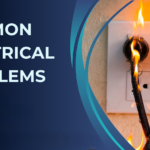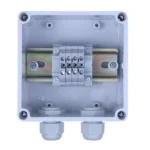The efficiency of electric motors plays a crucial role in the overall performance of machinery, influencing factors like energy consumption, operational costs, lifespan, and environmental impact. Here’s how motor efficiency impacts various aspects of machinery performance:
1. Energy Consumption and Operational Costs
- Reduced Energy Use: Efficient electric motors convert a larger percentage of electrical energy into mechanical energy, meaning they require less power to perform the same work. This directly lowers energy consumption, reducing operating costs.
- Cost Savings: Over time, energy-efficient motors can save businesses and consumers significant amounts on electricity bills. In industrial settings, where motors often run for long hours, the savings can be substantial.
- Regulatory Compliance: Many regions have energy efficiency standards and regulations (e.g., the IE3 and IE4 efficiency classes), which can make high-efficiency motors a requirement for new equipment or replacement motors.
2. Heat Generation and Cooling Requirements
- Reduced Heat Production: Less energy loss means less heat is generated by the motor. This results in a cooler operating environment and reduces the need for additional cooling systems, which in turn lowers maintenance costs and extends the life of both the motor and surrounding equipment.
- Lower Risk of Overheating: High-efficiency motors are less likely to overheat, reducing the risk of failure due to thermal stress. This improves system reliability and minimizes the risk of costly downtimes or repairs.
3. Longevity and Maintenance
- Extended Lifespan: Motors that operate more efficiently typically experience less wear and tear. Less heat, vibration, and strain on components lead to fewer breakdowns and a longer operational life for the motor. This reduces the frequency of repairs and replacements.
- Reduced Maintenance Needs: Efficient motors generally require less frequent maintenance because they operate with fewer stressors, reducing the likelihood of parts wearing out or failing prematurely.
4. Performance and Output
- Improved Machinery Output: High-efficiency motors can deliver more consistent and reliable performance. In industrial applications, this means machines can operate at their peak output for longer periods without experiencing power-related issues or failures.
- Smoother Operation: More efficient motors typically operate more smoothly, with less noise and vibration. This can result in improved product quality in manufacturing processes where precision and consistency are essential.
5. Environmental Impact
- Lower Carbon Footprint: By consuming less electricity, high-efficiency motors reduce the environmental impact associated with power generation. This is particularly significant in industries aiming to meet sustainability goals and reduce their overall carbon emissions.
- Energy Efficiency Incentives: Many industries are incentivized to use energy-efficient motors through government programs, tax credits, or rebates. This encourages the adoption of more sustainable practices and technologies.
6. System Integration and Compatibility
- Better Integration with Control Systems: High-efficiency motors often integrate better with modern control systems, including variable frequency drives (VFDs) and smart automation systems. This allows for more precise control over motor speed and power consumption, optimizing energy usage even further.
- Compatibility with Renewable Energy: More efficient motors are better suited for use with renewable energy sources, such as solar or wind power, because they require less power to operate. This supports the transition toward greener energy solutions in machinery and industrial systems.
7. Reduced Start-up and Operational Loads
- Fewer Surge Currents: Efficient motors tend to have lower inrush currents when starting up, meaning less stress on electrical infrastructure. This reduces the risk of damage to the motor and the system’s electrical components.
- Smooth Start and Operation: High-efficiency motors often have better start-up characteristics and operate at full capacity more quickly. This ensures smoother transitions from start-up to operational mode, improving productivity and reducing downtime.
8. Flexibility and Versatility
- Adaptation to Variable Loads: Energy-efficient motors, especially those with variable speed drives (VSD), can more effectively handle changing operational loads. They adjust their power consumption to match the required load, ensuring optimal performance even under varying demand conditions.
- Enhanced Control: The efficiency of the motor improves with advanced control technologies (e.g., soft starters and frequency converters), which provide finer control over the motor’s operation, improving its overall responsiveness and adaptability in complex machinery.
Conclusion:
The efficiency of electric motors has a direct impact on machinery performance, from reducing energy consumption and operational costs to extending motor lifespan and improving product quality. In industrial, commercial, and consumer applications, using high-efficiency motors is crucial for optimizing performance, minimizing environmental impact, and ensuring long-term reliability. As industries continue to prioritize sustainability and cost-saving strategies, the demand for more efficient electric motors will only grow.
Hashtags
#MotorEfficiency #EfficientMotors #ElectricMotorPerformance #HighEfficiencyMotors #EnergyEfficientMotors #MotorEfficiencyMatters #OptimizedMotorPerformance #ImprovedMachineryPerformance #EnergySavingMotors #MotorEfficiencyInIndustry #EnergySavings #ReducedOperationalCosts #EnergyEfficientMachinery #CostEffectiveMotors #SaveEnergyWithMotors #ReducedMaintenance #EfficiencyLeadsToSavings #SustainableMotorUse #ElectricMotorsForCostEfficiency #LowerEnergyConsumption #ReliableElectricMotors #MotorReliability #DependableMotors #EfficientMotorsForReliability #LongLastingMotors #MotorDurability #OptimizedMachineReliability #ReducedMaintenanceWithEfficientMotors #EnhancedMachineLife #MotorEfficiencyAndLongevity #GreenElectricMotors #EcoFriendlyMotors














